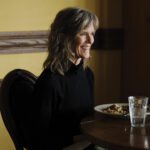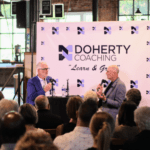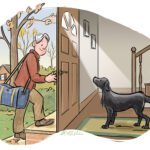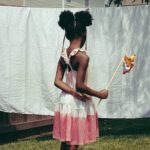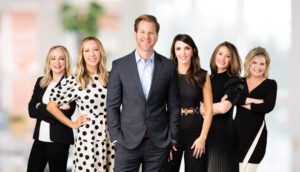Learning curve
March 30, 2020
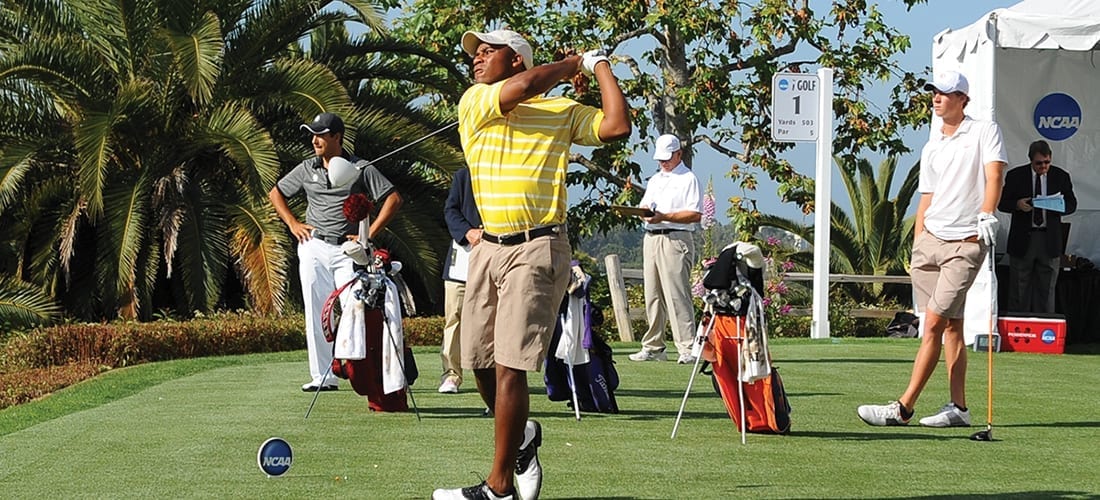
Harold Varner III inches closer to a PGA tour breakthrough.
by Michael J. Solender
It’s 10 a.m. on the last Monday in January, the day after The Farmers Insurance Open at the fabled Torrey Pines South Course in San Diego. I’m glued to my desk, waiting on a call from Harold Varner III.
We were scheduled to chat a week earlier when he was in Palm Springs as part of the PGA Tour’s 2020 opening West Coast swing, five weeks of events that serve as a warmup for 175 or so of the world’s best golfers. Varner had to cancel at the last minute as our time slot got filled with some serious new equipment testing, but his agent promised his undivided attention today. HV3, as he’s known on tour, called right on schedule.
While several PGA tour professionals call the Charlotte area home, Varner is one of the few that have deep-rooted Carolina bona fides that extend back to elementary school, when he moved to Gastonia from Ohio. Varner first picked up a golf club at age 6, and with his father as his teacher and coach, he quickly developed his talent for the game.
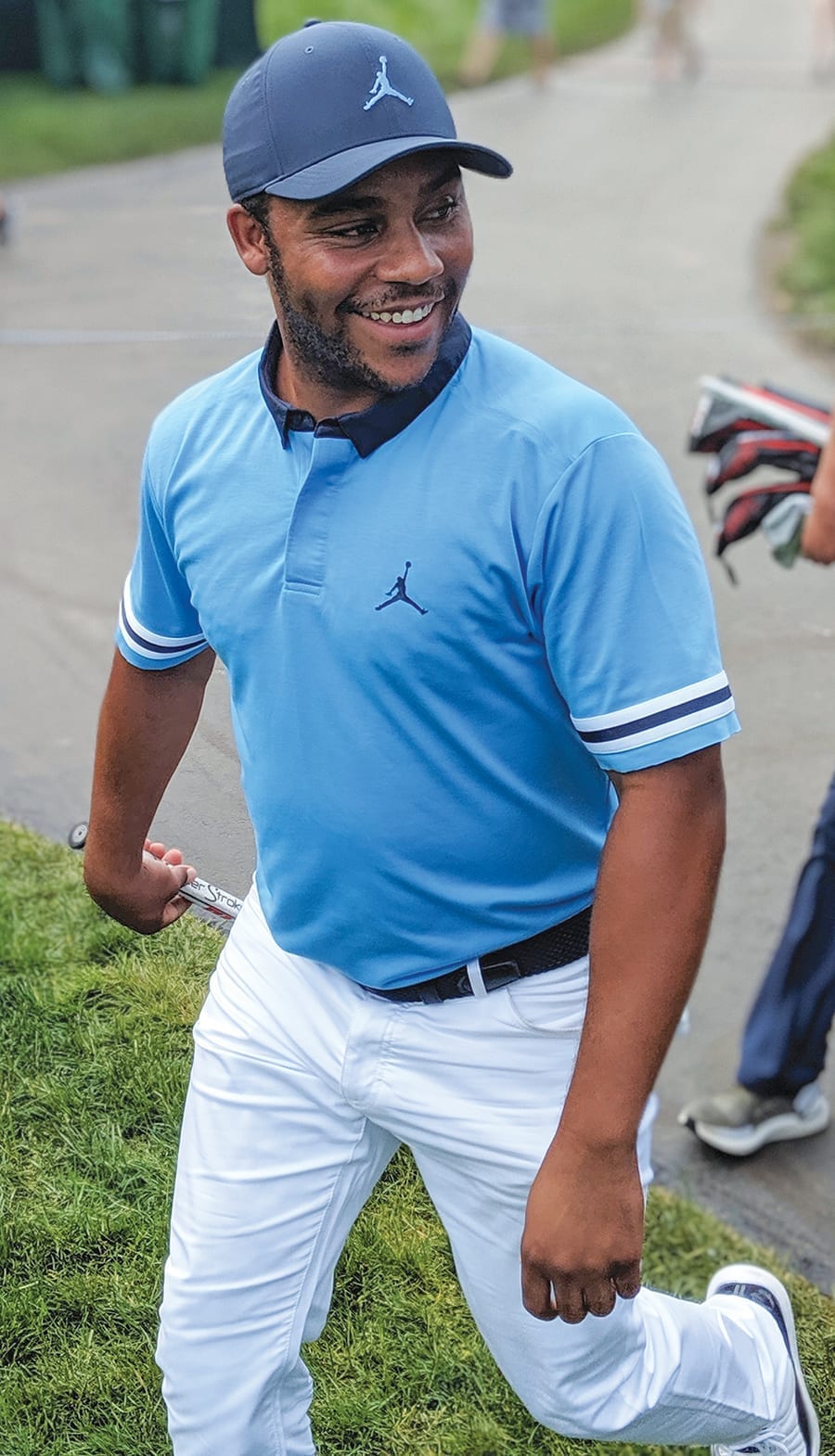
Varner starred at Gastonia’s Forestview High School and went on to a storybook collegiate career at East Carolina University, where he was the first golfer in the school’s history to earn the Conference USA Player of the Year honors. Varner earned his PGA Tour card in 2016 after turning pro in 2012. He notched his first international victory winning the 2016 Australian PGA. As of this writing, Varner, now 29, has 11 top-ten finishes on tour, last year earning a tie for third at the Northern Trust in New Jersey, his best finish to date.
He’s also narrowly missed a couple of big opportunities. At last year’s PGA Championship, Varner, tied for second after 54 holes, played in the final pairing with Brooks Koepka and shot a disappointing 81 to finish in a tie for 36th place. More recently, at the 2020 Genesis Invitational in February, he was tied for the lead during the final round before hitting a poor tee shot on the 10th hole. This led to a disappointing closing nine, and Varner finished tied for 13th place.
In early 2019, Varner, one of only a handful of African American players on tour, formed the HV3 Foundation, a nonprofit that provides access to equipment, coaching and playing opportunities for disadvantaged youth.
Varner found plenty of support growing up in Gastonia. Starting out in a junior program at a local municipal course, in high school, he got a job working in the bag room at Gaston Country Club, tending to members’ clubs. There, PGA pro and instructor Bruce Sudderth took a special interest in him and spent countless hours helping polish his game.
Varner has a home in the Lake Wylie community of RiverPointe, though he still spends time in Gastonia, where he’s building a new home for his parents on a 16-acre parcel, complete with a driving range.
I spoke with Varner about his love for the game, the Carolina Panthers and his friendship with Charlotte Hornets owner Michael Jordan.
Comments have been edited for length and clarity.
What are your fondest memories about living and growing up in North Carolina?
I had a lot of opportunities and access to play golf. I was very fortunate to have that. I remember that the most, and then just always having someone to play with, whether it was my dad or [other] kids, and in competition. I played at the NJGA (National Junior Golf Association) growing up, and then played the CGA (Carolinas Golf Association) events after that. I was always playing in tournaments and working to get better. Going to school at East Carolina was a tremendous experience as well.
You’ve often remarked that your experience with the members and staff at Gaston Country Club was special. How so?
I always was encouraged and had the opportunity to play all the time.It is a family there. Early on after I began working there, I asked Bruce Sudderth if he would help me. I was very nervous, but he put me at ease and told me to show up the next morning ready to learn. For the longest time, he was the only person I’d ever taken lessons from other than my father. He taught me how to play golf, how to be a professional — and he obviously changed the direction of my life. I would not be where I am today without him.
At what point did you come to believe that you could make a living playing professionally?
I would say my junior year of college. I started playing around the country, and I was playing well, so I just felt it was a no-brainer. I really didn’t have a Plan B. I majored in marketing in college but was focused on becoming a professional. I never applied for a job. I wanted to play golf and started with the eGolf tour (formerly the Tarheel Tour) in the Carolinas — so I just played all over and continued to get better.
What’s the biggest misconception about being on the tour?
You have to work your [tail] off. I don’t think many people recognize how hard you have to work and how much effort goes into continually staying competitive. You have to continue to get better, to improve. Many [fans] come to events to have a good time, see beautiful places, but [for the players], it’s a business.
You had what some would consider a career-defining experience last year at the PGA Championship. What did you learn from that?
That I’m good enough [to win a major tournament]. I had a great opportunity to do something well, and to be able to be there was just super — kind of super cool. It was just a tough day on the golf course. I wouldn’t change a thing. It probably helped me out when I went and played the Northern Trust later that year. Just being able to be there and know that, “Hey man, it’s all right, you got this. Come on, this is why we play.”
What kind of support did you get from your peers?
I talked to Tiger [Woods] about it and that was just a cool experience, learning from him, understanding how to get better. Michael Jordan talked with me about not getting ahead of myself. It’s easier said than done, but that’s an important part of life in golf or sports in general. I’ve talked to him a good bit about competing and things in my life that athletes go through and how he’s dealt with it. He’s been super, super good at helping me with solid advice.
Is there added pressure playing in front of the home crowd?
The coolest thing about playing at home is they’re going to love you regardless. If you play well, they’re going to love you. If you play bad, they’re going to love you, and there’s no better feeling than being loved. … I love playing at home because it’s bigger than me. It’s more important than me. People live vicariously through me, and then I just love seeing their faces and just being right at home.
Is it true that Tiger Woods once snubbed you for an autograph at the Wells Fargo Championship?
Yeah, that’s true. It was called the Wachovia [Championship] then and the [player access] was easier at the range. I was 12 years old at the time, just holding out my golf hat for him to sign and he just walked right past me. I told him that story and he just laughed and told me that’s probably the reason I’m on the tour now.
Are you a Carolina Panthers fan?
Oh, I’m a massive Panthers fan. I got to know Ron [Rivera] pretty well. He was a great ambassador for Charlotte, how he carried himself, the way he answered to the media. I hope [new coach Matt Rhule] can do the same thing. Our job [as fans] is to support the Panthers, and I feel that as a fan base, we did a terrible job of that this year. Yeah, everyone loves winning, it’s just very hard to win. It would be like supporting me — right now, no one probably wants to support me, but they do. That’s the same way you need to support your team. SP
